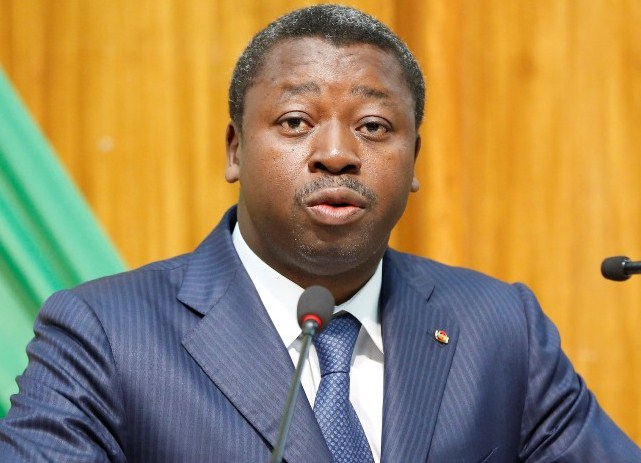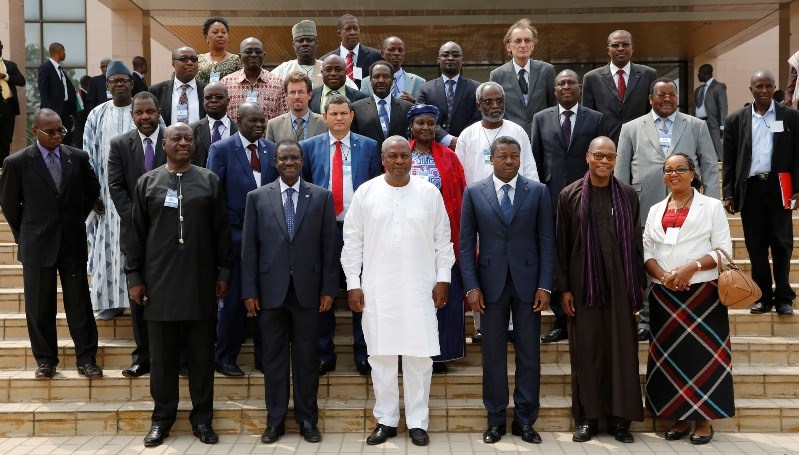West African leaders reinforce measures to eradicate Ebola outbreak

By Blame Ekoue
The death toll from the world’s worst Ebola outbreak has reached 8,429 with 21,296 cases so far, according to the latest World Health Organization (WHO) report. However, the usually grim faces are now grinning in Liberia, Sierra-Leone and Guinea, the three most affected countries in the sub-region. The ubiquitous blaring of ambulance sirens, which preceded the burials of Ebola victims, has also reduced considerably.
Even though new Ebola cases in the three West African countries worst affected by the deadly outbreak of the virus are declining, the Economic Community of West African States (ECOWAS) decided to reinforce its surveillance measures at the High Level Coordination meeting of partners on the fight against the Ebola disease held in Accra on January 16, 2015. The two-day meeting served as a platform to assess the achievements in the fight against the disease and to re-strategize against its elimination in the coming days in the sub-region. The meeting was also attended by Togolese President Faure Gnassingbe, ECOWAS Focal Person on the disease, and Dr. Mohammed Ibn Chambas, United Nations Special West African Representative. Other partners included the World Health Organization, the European Union and the West African Health Organization.
The current chairman of ECOWAS, the Ghanaian head of state, John Dramani Mahama, made an appeal for more effective measures to stem the spread of the deadly Ebola virus in the 15-member states. “Although the incidence of the Ebola Virus Disease in some West African Countries was stabilizing, there was the need to take more effective measures to stem its spread. This could be done through the increasing of knowledge on the disease, exposing and adoption of effective treatment measures, and establishment of stronger relations among West African countries President Mahama,” said the Ghanaian president.

Dr. Ibn Chambas, for his part, expressed his sorrow about the epidemic proportions of the Ebola Virus in the sub region. “it was heart-breaking to witness the spread and toll on the affected West African countries,” Mr Chambas told the audience. He also explained that apart from isolating the affected countries, the fast-spreading disease had also collapsed vital sectors of their economies, causing employment to drop by 50 per cent. He mentioned some sectors including agriculture, health, education and mines that have been adversely impeded by the current outbreak of the Ebola virus.
Dr. Kadre Desire Ouedraogo, President of the ECOWAS Commission, commended President Mahama for his role in the fight against the disease in West Africa saying the president’s visits to the affected countries and the appointment of President Gnassingbe to oversee the trend of the disease in affected countries were laudable. Dr. Ouedraogo also called for more synergies in terms of human and material resources to support the affected countries to come out of the outbreak of Ebola Virus because it has hampered vital sectors of their economies.
The Togolese head of state, Faure Gnassingbe, expressed satisfaction at the decreasing rate of contamination in the most affected countries. He, however, called for more vigilance and consolidation in the affected countries, despite what he described as “encouraging signals”. “In spite of the efforts that we have made in order to curb and eradicate the outbreak and the encouraging signals registered in some countries, we are aware that the real significance of all initiatives taken so far will be measured only through their impact on the field,” President Faure Gnassingbé said.
At the end of the two-day meeting, The ECOWAS commission called for more synergies in terms of human and material resources to support the affected countries to come out of the epidemic, which had crippled their industries. Participants also called for the setting up of many more treatment centers to assist patients in the endemic countries in the sub-region. They also called upon ECOWAS member states to set up Rapid Response Teams at national, district and regional levels, supported by Inter-Ministerial Coordinating Committees as part of the preparedness and containment mechanisms against the disease.
Ghana’s Health Minister, Dr. Kwaku Agyemang-Mensah, who presided over the meeting of the technical session held a day before the High Level Coordination Meeting of ECOWAS and partners, told the audience that mechanisms and proposed National Technical Coordinating Committees should provide guidance and assist the implementation of the health sector preparedness and response plans against Ebola and similar epidemics. He also said that member-states should be inspired by the success stories and best practices from some countries that have succeeded in controlling the fast-spreading disease.
It will be recalled that the West African sub-region recorded confirmed Ebola Virus Disease cases in April last year and in August the World Health Organisation (WHO) declared the outbreak a public health emergency of international concern. Various international intervention measures, including the U.N. Mission for Ebola Emergency Response (UNMEER), have been set up to fight against the outbreak of Ebola Virus in the sub-region. The most affected countries include Liberia, Sierra Leone, Guinea. But some countries including Mali, Nigeria and Senegal, which also had their share were able to contain the spread. The number of health workers who have lost their lives in the discharge of their duties in the Ebola disease outbreak have reached a total of 488 so far. Since the WHO was notified of the outbreak, a total of 21,086 confirmed, probable and suspected cases of the disease have been reported in six different countries, Guinea, Liberia, Mali, Sierra Leone, Spain and the United States of America, and two previously affected countries, Nigeria and Senegal.


